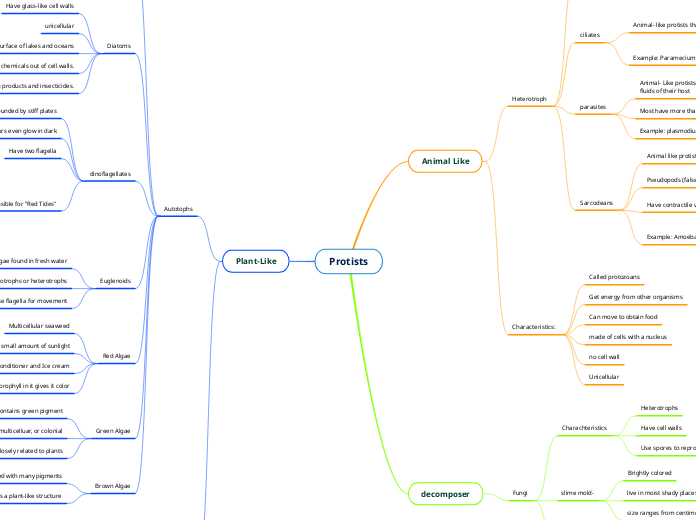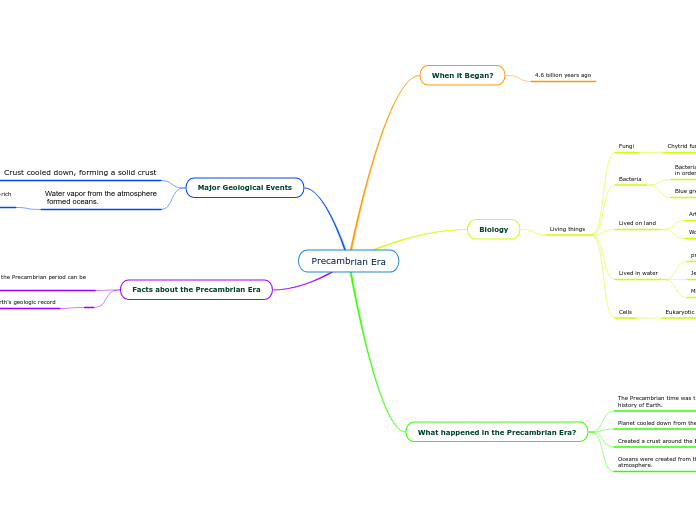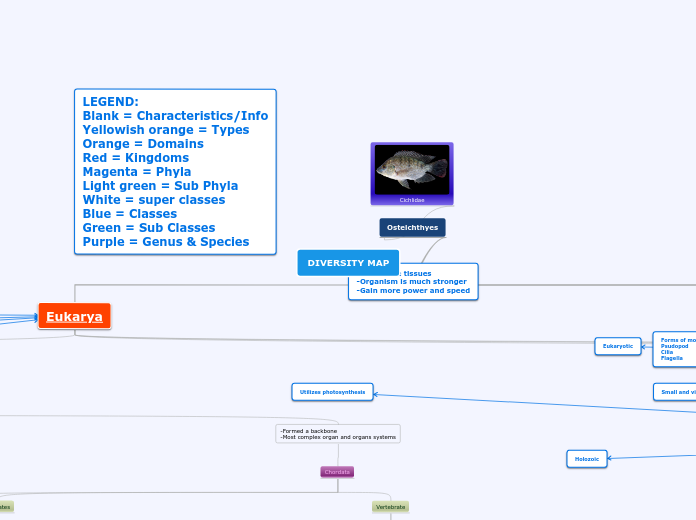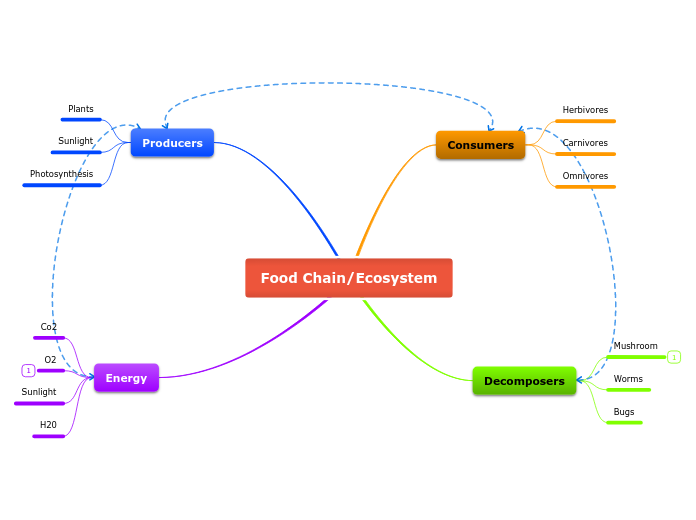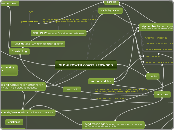Protists
Plant-Like
Characteristics
there are 7 main types
some are multicellular
Some are unicellular
uses suns energy to produce its own food
Commonly called algae
Autotophs
Brown Algae
has a plant-like structure
Seaweed with many pigments
Green Algae
Closely related to plants
unicellular, multicelluar, or colonial
colonial organisms live attached to others
contains green pigment
Red Algae
The red chlorophyll in it gives it color
used in hair conditioner and Ice cream
only needs small amount of sunlight
Multicellular seaweed
Euglenoids
use flagella for movement
can be autotrophs or heterotrophs
Green unicellular algae found in fresh water
dinoflagellates
Responsible for "Red Tides"
Have potential to kill other organisms
as result of rapid accumulation of algae, in water column
Usually in costal areas
Common name for Algal bloom
Have two flagella
come in lots colors even glow in dark
Unicellular algae surrounded by stiff plates
Diatoms
Used in household scoring products and insecticides.
moves by oozing chemicals out of cell walls.
float near the surface of lakes and oceans
unicellular
Have glass-like cell walls
Algae
Contain chlorophyll and photosynthesis
Most live in water, some on damp surfaces.
Very important in oxygen production
Plant like protists
decomposer
Fungi
Water Molds and Downy Mildews
responsible for irish potato famine
they grow tiny threads that look like fuzz
Most live in water
slime mold-
size ranges from centimeters to meters
live in moist shady places
Brightly colored
Charachteristics
Use spores to reproduce
Spore- Tiny cell that can grow into a new organism
Have cell walls
Heterotrophs
Animal Like
Characteristics:
Unicellular
no cell wall
made of cells with a nucleus
Can move to obtain food
Get energy from other organisms
Called protozoans
Heterotroph
Sarcodeans
Example: Amoeba Proteus
Named after greek god that could change shape
Most well known amoeba
Have contractile vacuole
collects and expels water in the cell.
Pseudopods (false feet) to get food
Extension of the cell (bulge) that engulfs food and
moves.
Animal like protist that moves to obtain food
parasites
Example: plasmodium
Causes malaria
Most have more than one host.
Animal- Like protists that feed on the cell and body
fluids of their host
ciliates
Example: Paramecium
Animal- like protists that use cilia to move and eat
Cilia= Hair-Like projections from the cell that move
in waves.
sweeps food to the ciliates
Work together like oars to beat and move.
flagellates
Example: Paranema
They can have one or more flagella
Animal-like protists that use Flagella to move
Flagella= whip like tail structure
